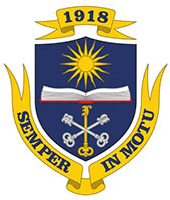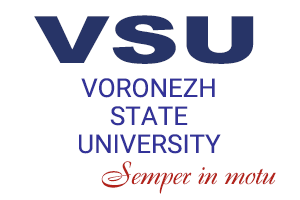The Russian Science Foundation announced the results of the grant competition for small individual research groups. Among the winners of the competition were the following VSU scientists: Yuri Gliklikh, PhD in Physics and Mathematics, Professor of the Department of Mathematical and Applied Analysis; Evgeny Semenov, DSc in Physics and Mathematics, Professor of the Department of Geometry and Functional Theory; Sergey Eprintsev, PhD in Geography, Associate Professor of the Department of Geoecology and Environmental Monitoring; Aleksey Kruzhilin, PhD in Chemistry, senior researcher of the Laboratory of Organic Additives for the Chemical and Electrochemical Deposition of Metals and Alloys Used in the Electronics Industry; Tamara Kondratenko, PhD in Physics and Mathematics, Associate Professor of the Department of Optics and Spectroscopy; and Vladislav Chernov, DSc in Physics and Mathematics, Professor of the Department of Mathematical Physics and Information Technologies.
“The grant competition of the Russian Science Foundation, where our application won, provides for research by small research groups. Given the limitations on the composition of the team, it is sometimes not easy to form a workable team. But I believe that we coped with it. Our team consisting of Oleg Klepikov, Nina Dyakova, and Pavel Vinogradov has a good scientific potential, which was noted by the experts of the Foundation on the declared subject (GIS and Analytical Modelling of Environmental Optimisation in Areas of Increased Environmental Risk). The project is supposed to use an interdisciplinary methodological approach that takes into account a variety of environmental risk factors. Its results should be of great environmental and socio-economic significance,” commented Sergei Eprintsev, PhD in Geography, Associate Professor of the Department of Geoecology and Environmental Monitoring.
“The Department of Organic Chemistry has been working on metal corrosion inhibitors for at least a couple of decades. The most attention is paid to organic substances, which contain one or more cycles with nitrogen atoms in their chemical structure. As a member of the department, I have been involved in research on corrosion inhibitors for the last 7-8 years. From 2020 to 2021, I had the opportunity to lead the Russian Foundation for Basic Research (RFBR) project on the same topic. We focused on acid corrosion inhibitors for the oil industry. Within the framework of the project, we obtained positive results for the first time. We used waste vegetable oils as a raw material to synthesise our heterocyclic inhibitors. Thus, this grant is very useful for my research work. Besides financial support, it has another value. Receiving such a grant shows that our work is in demand. It is very important for scientists engaged in fundamental research to realise that their research yields a definite result and can benefit society in the future,” said Aleksey Kruzhilin, PhD in Chemistry, senior researcher of the Laboratory of Organic Additives for the Chemical and Electrochemical Deposition of Metals and Alloys Used in the Electronics Industry.

